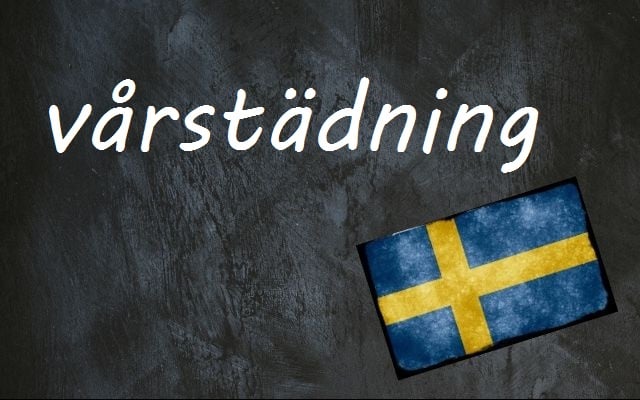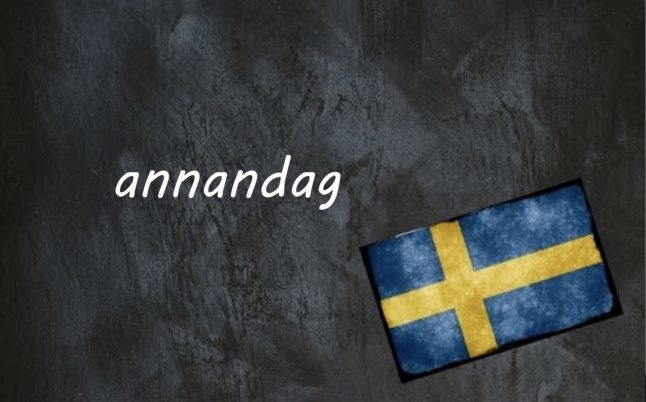Vårstädning (vår + städning) means ‘spring clean’ and refers to a big tidy-up at the start of the warmer season. You can do this on your own at home, but in Sweden many housing associations and apartment blocks also organise a vårstädning day as a group activity.
Usually the association will invite residents to take part in the day, which might involve weeding, planting flowers, and bringing out any outdoor furniture. It’s a chance to get to know the neighbours and coffee and snacks like biscuits or hotdogs are often provided for helpers.
There’s also an autumn counterpart, höststädning, when the outdoor furniture gets taken in and the garden cleared up ready for winter.
Sweden is generally considered a tough place to make friends, and even to get to know neighbours — it’s not that common, for example, to knock on neighbours’ doors to introduce yourself as a new arrival, especially in big cities where apartment blocks have a relatively higher turnover of residents.
But participating in these organised chores, as well as getting involved with the association’s board itself, is a way to show you’re a good neighbour, willing to do your part.
You can also use vårstäda as a verb, for example vårstäda trädgården (to give the garden a spring clean).
And like in English, the term can be used figuratively. In 2021 ministers discussed a vårstädning of Sweden’s population register, involving removing outdated coordination numbers from the register, and you might also use it to talk about another kind of re-organisation.
Example sentences:
Har ni några planer för helgen? Nä, inte riktigt, vi ska mest vårstäda.
Do you guys have any plans for the weekend? Nah, not really, we’re mainly going to be spring cleaning.
Oj vad det känns bra att vårstäda! Hela lägenheten har fått ett lyft.
Ah, it feels so nice to spring clean! The whole apartment has been refreshed.
Villa, Volvo, Vovve: The Local’s Word Guide to Swedish Life, written by The Local’s journalists, is now available to order. Head to lysforlag.com/vvv to read more about it.
It is also possible to buy your copy from Amazon US, Amazon UK, Bokus or Adlibris.



 Please whitelist us to continue reading.
Please whitelist us to continue reading.
Member comments